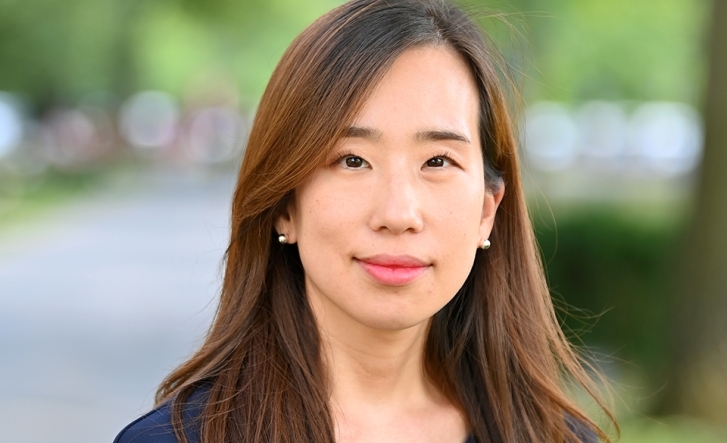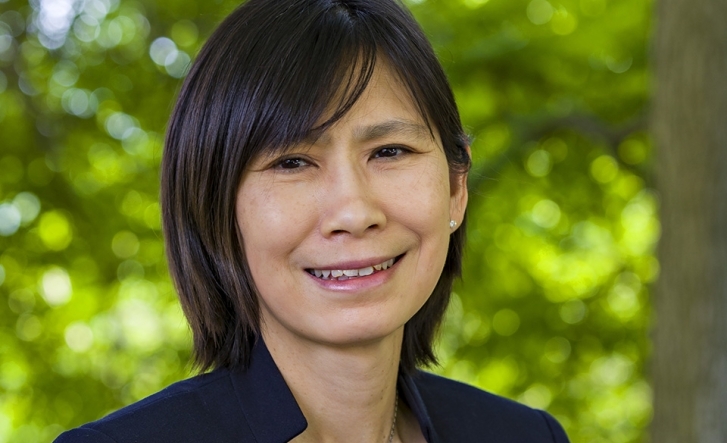Dianella G. Howarth, Ph.D.
Growing up in Hawaii, Dianella G. Howarth, Ph.D., became interested in how flowers evolved and diversified for her seventh grade science project. Now Professor and Chair of Biological Sciences at St. John’s University, Dr. Howarth has built an impressive record of scholarship and teaching that addresses this same issue.

“Dr. Howarth’s research has brought her all over the world, including Panama, Indonesia, and Australia, and has helped her secure approximately $1.5 million in national funding in the past eight years,” said St. John’s College of Liberal Arts and Sciences Dean Jeffrey W. Fagen, Ph.D.
Most recently, Dr. Howarth has been awarded a grant of $363,827 from the National Science Foundation (NSF) through August 2022 for her project entitled “Collaborative Research: Honeysuckle Phylogenomics and the Evolution of Organ Fusion (Lonicera, Caprifoliaceae).” Dr. Howarth will direct the project in collaboration with colleagues Michael J. Donoghue, Ph.D., of Yale University and Wendy Clement, Ph.D., of The College of New Jersey.
The research team will fill a gap in evolutionary knowledge by undergoing a thorough study of the more than 180 species of honeysuckle, something that has not been previously accomplished. They will map the genomics of honeysuckle species to determine their relation to one another and develop an “Atlas of Lonicera” that catalogs characteristics and quantified measurements for the various species. The atlas would be used to improve future studies of the plant genus. Dr. Howarth will map the genes involved in the fusion of ovaries and bracts in paired flowers, something that is not well understood in plants and has implications for agriculture.
In addition to furthering research on Lonicera, the grant will facilitate teaching and learning experiences. As part of the project, the team will work with an artist to produce three-dimensional models of fusion in Lonicera, which will be displayed at all three institutions to increase knowledge and awareness of the genus. At St. John’s, the grant will allow Dr. Howarth to host an undergraduate research assistant and post-doctoral fellow in her lab each year, and to send the post-doctoral fellow to China to collect research samples.
In 2015, Dr. Howarth received another NSF grant in the amount of $367,284 for her proposal, “Collaborative Research Transitions and Transcriptomics: A Novel Approach to Understanding Shifts in Floral Developmental Pathways Preceding the Origin of the Pentapetalae.” She submitted the proposal to the NSF’s Phylogenetic Systematics program, which supports research that addresses significant questions about organismal evolution using phylogenetic approaches, and that focuses primarily on investigating the origins of biodiversity and resolving relationships among species.
The funding allowed Dr. Howarth’s lab, in collaboration with researchers at the University of Florida, to explore genetic changes from nearly 100 million years ago that led to the diversification of 70 percent of flowering plants (approximately 170,000 modern species). The researchers extracted DNA and RNA from cells and sequenced genomic and transcriptomic information from species related to this transition in the hopes of determining how the typical Pentapetalae flower arrived at its current 5-parted structure with concentric floral whorls that have clearly defined sepals, petals, stamens, and carpels. Since flowering plants are the most abundant and diverse form of plant life on Earth, this discovery promises to reveal one of the major mysteries of plant evolution.
“Plants are a great place to study evolution and how diversity happens,” said Dr. Howarth. “You don’t come across the same research issues you do with human or animal subjects. And for some reason, plant evolution doesn’t invite as much controversy as human or animal evolution.”
In 2011, Dr. Howarth was granted $550,000 for her abstract, “The Role of Gene Duplication in the Floral Symmetry Pathway in Dipsacales.” In 2012, she received $225,000 for her collaborative work on the evolutionary history of the Australian plant family Goodeniaceae.
Dr. Howarth holds a B.A. in Biology from the University of Pennsylvania and Ph.D. in Biology from Harvard University. She was awarded a postdoctoral fellowship from Yale University.



